If you asked a room full of people who loves a micromanager, it’s unlikely that you’d see a forest of raised hands. This redditor surely wouldn’t raise hers.
The netizen recently turned to the malicious compliance community to share how she dealt with micromanaging people at work, after they woke her up at “half past stupid o’clock”.
Scroll down to find the full story below, where you will also find our interview with Associate Professor of Organizational Behavior at Universidade Católica Portuguesa, Jon Gruda Ph.D., who was kind enough to answer a few of our questions on micromanaging.
Rest is a crucial part of a trucker’s job

Image credits: Tony Mrst / pexels (not the actual photo)
This trucker’s sleep was interrupted by a micromanager, who was then served a portion of malicious compliance

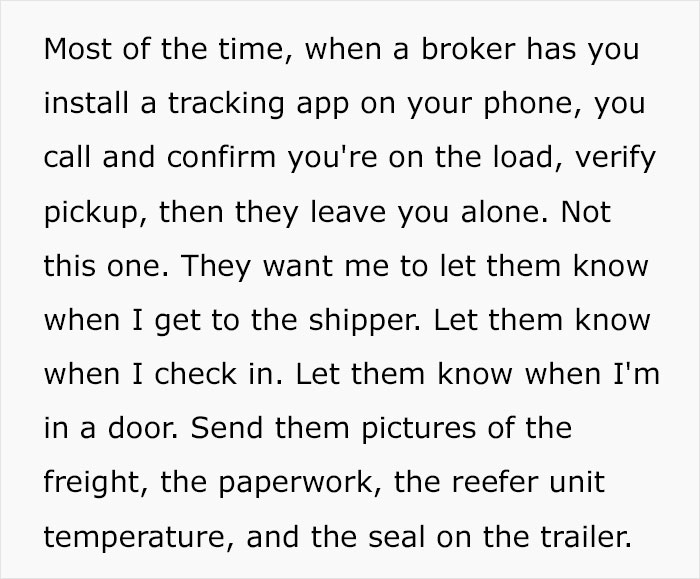

Image credits: Anastasia Shuraeva / pexels (not the actual photo)




Image credits: mmmmpisghetti


Image credits: mmmmpisghetti
Micromanaging can be detrimental to both the employee and the company
According to an expert in organizational behavior, Dr. Jon Gruda, micromanaging usually harms employees more than it helps. “It often signals a lack of trust in employees’ abilities, leading to decreased autonomy and higher stress, reduced job satisfaction, and potential burnout. Micromanaged employees may feel undervalued and disengaged, reducing productivity and increasing turnover.”
In addition to the detrimental effects on employee well-being, micromanaging doesn’t help the company itself, either. “Micromanaging disrupts team workflows and organizational efficiency. It causes frequent interruptions, slows decision-making, stifles creativity, and prevents employees from developing leadership skills due to dependency on approvals for even minor decisions,” Dr. Gruda continued.
While the redditor’s workflow likely differs from that in a corporate setting, for instance, it’s arguably not that different in regards to how detrimental micromanaging can be. Surveys reveal that such a style of management has resulted in negatively impacting the morale of as much as 85% employed individuals who’ve experienced it, and it has made nearly seven-in-ten of them consider changing jobs.

Image credits: Jonathan Borba / pexels (not the actual photo)
The overly attentive management style often originates from a manager’s insecurities and need for control
Dr. Gruda pointed out that micromanaging often stems from a manager’s insecurities and need for control. “Managers might micromanage out of fear that independent work by employees could reflect poorly on their abilities. Organizations should support managers by providing training to build their confidence and trust in their teams, which can help reduce micromanagement and foster a more positive workplace culture,” he told Bored Panda.
However, if organizations can’t provide said support or managers simply can’t seem to let go of control, the employee can try taking matters into their own hands; to some extent, at least. For those dealing with a micromanager, Gruda suggested focusing on three points, the first one being setting boundaries and asking for autonomy. “Express your need for autonomy and propose how you can manage tasks independently.”
The second point was seeking feedback and clarifying expectations: “Address any unclear expectations with your manager to reduce unnecessary oversight,” Gruda advised. Finally, try focusing on building trust by demonstrating reliability in your tasks to gradually build trust and reduce micromanagement.
In situations where building trust or seeking a long-term professional relationship does not make much sense—or is simply not worth fighting a micromanager’s aggravating ways for—engaging in malicious compliance can also be an option; the netizen revealed that for her, it resulted in an apology for waking her up at “half past stupid o’clock”.

Image credits: Andrea Piacquadio / pexels (not the actual photo)
The netizen shared more details in the comments

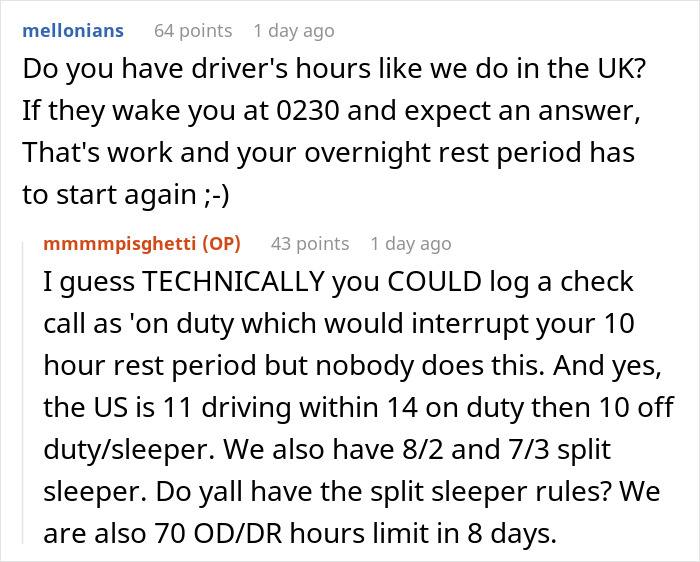
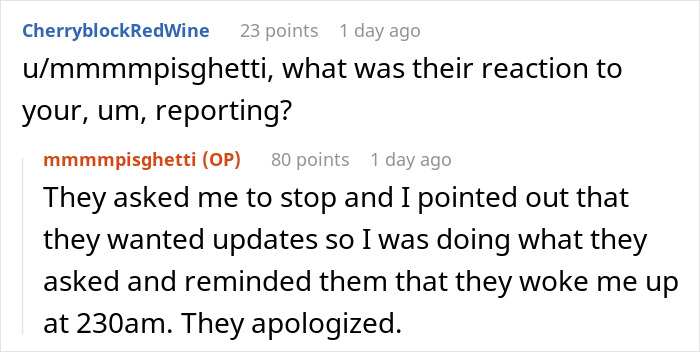






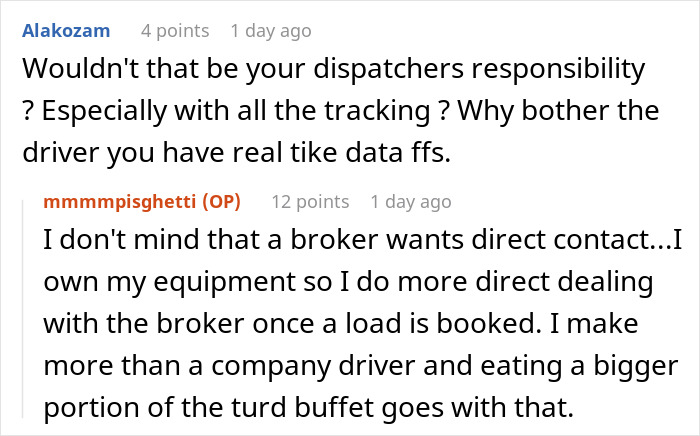

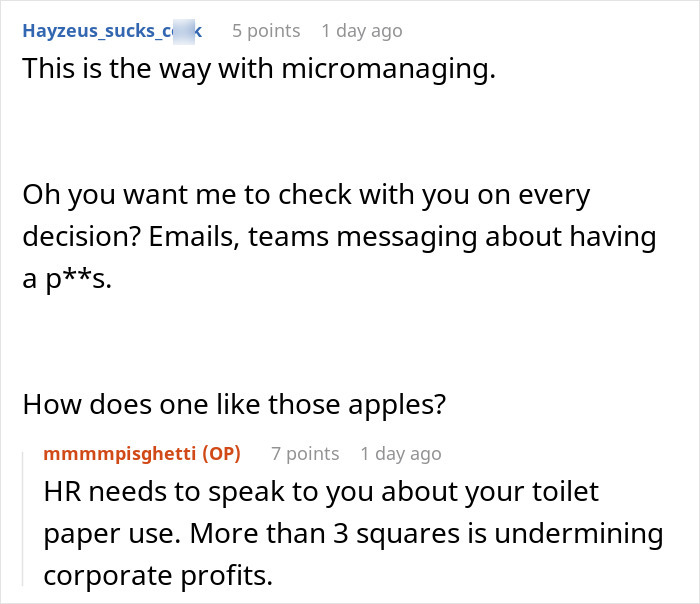
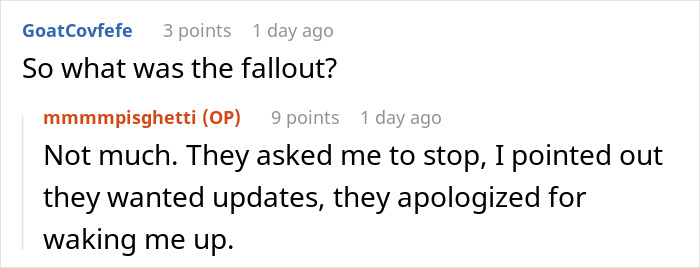

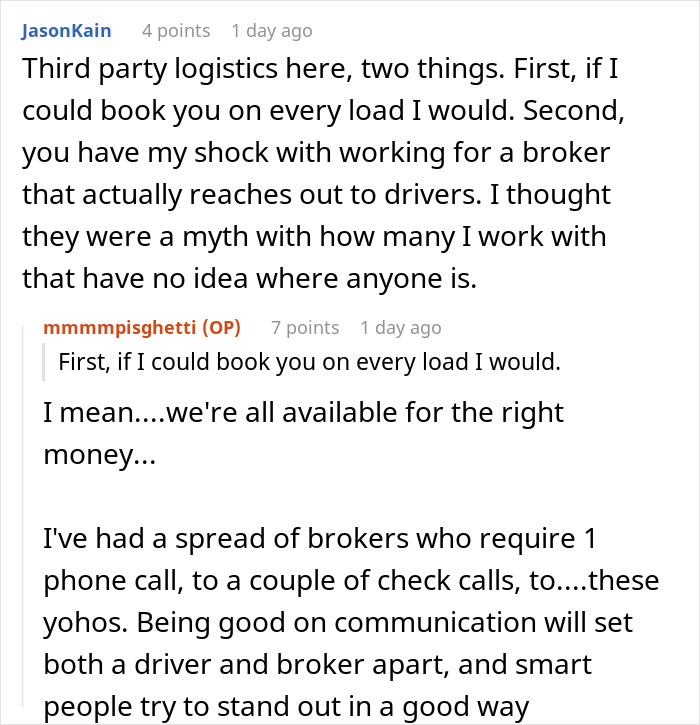
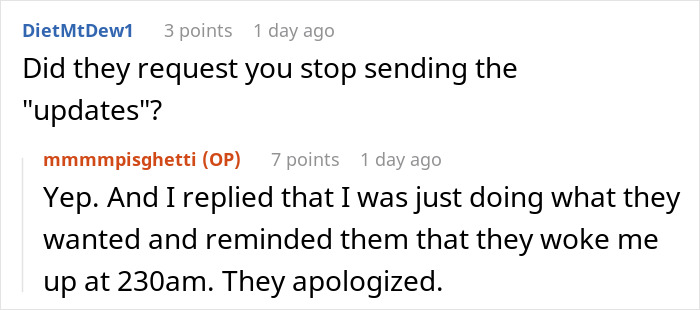
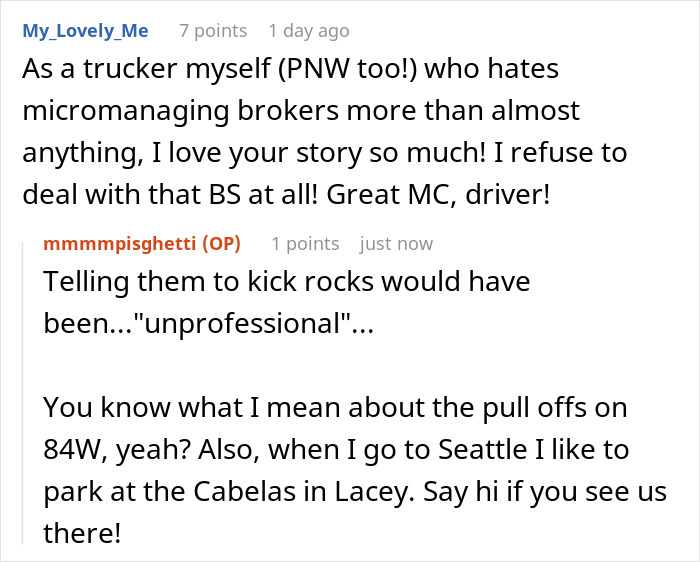
Fellow redditors discussed similar stories









